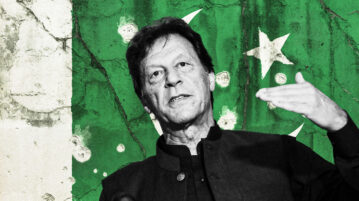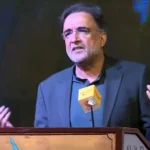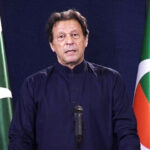The political gloom in the nation is deepening rather than dissipating in the wake of the PML-N’s setback in the Punjab by-elections. Even as it seems unavoidable to replace Hamza Shehbaz’s administration in Punjab, concerns are being raised over the ability of the coalition government of 11 parties to remain in power. The PML(N) and the PPP rejected this demand and bluntly stated that the current National Assembly would finish its constitutional term, the government would remain in place, and general elections would take place in the middle of next year. The PTI leadership is increasing pressure on the federal government to hold general elections ahead of schedule. Given that the political horizon is now shrouded in ambiguity rather than clarity, it is difficult to predict with any degree of precision how the power struggle will turn out.
There is no question that before gaining power, the allies were calling for national elections. From Maulana Fazal-ur-Rehman to Bilawal Bhutto and Mian Shehbaz Sharif, they promised the nation that after removing Imran Khan from office, general elections would be held and the people would have the chance to choose their representatives with their free will within two months, at most. However, as soon as they took office, they began making announcements about ruling until August of the following year. The populace perceived it as an insult and accepted the contention that the alliance was there not to reduce inflation and organise fresh elections but rather to protect their plunder and further American interests.
The coalition government’s decision to modify accountability and election rules instead of addressing societal issues and by adhering to the IMF’s terms has made people’s lives miserable, but they are no longer as forgetful as they once were, which supports the PTI narrative.
The ruling coalition suffered a terrible defeat in the elections as a result of the public’s growing awareness of everything and their ability to see how their own agenda is being pursued. In an effort to conceal this defeat, the PML-N has made an excuse for the lack of worker mobilisation while the non-cooperation of the allied parties is suspected, and sometimes it is said that they had to lose in the elections because the PML-N fielded its long-standing candidate.
It is a reality that, after three months, the public lost faith in the coalition administration. The PML(N) leadership had thought about the reasons for the defeat after observing the public mood, but up to this point, the election results have not been taken into consideration, nor have the dangers of political and economic instability in the nation been realised. This is because, following the establishment of the Chaudhry Pervez Elahi government in Punjab, the federal government led by Shehbaz Sharif will have even less control over political and economic issues.
Political unrest will worsen and default fears will rise, but Mian Nawaz Sharif, Asif Ali Zardari, Mian Shehbaz Sharif, and Maulana Fazal-ur-Rehman are adamant about serving out the remainder of their time in office and refusing to call new elections as Imran Khan has demanded. The nation’s leaders should be focused on preserving the state, not politics, but they are instead occupied with defending their political interests, despite the fact that this is not Imran Khan’s desire.
The coalition government’s assertions have all been refuted. In its three months in office, the coalition government has failed to provide anything for the populace or manage the economy of the nation. The rupee’s value is falling every other day, while inflation is rising. The coalition insists that they are popular with the public and will win again, even after suffering a severe loss in the elections.
In our nation, political change happens quickly, but this time, politics is taking on a new hue. Persistence is the key to bringing about change through the voting box with the average person, much as Zulfiqar Ali Bhutto had done for the Pakistani public by teaching them to speak with political consciousness. After the public shift, the coalition administration is anxious internally, but there doesn’t seem to be any panic showing.
The only way to put an end to this political instability and uncertainty is to hold new elections. The government can do this by announcing the elections as soon as possible. If they don’t, everything will vanish under the shadow of profound uncertainty on the political horizon, at which point nobody will have anything in their hands.








